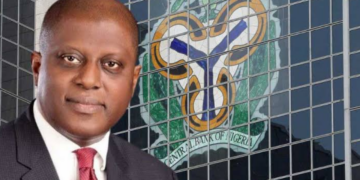There is nothing Victor A, a medical doctor in Lagos would say or do that his supervisor won’t find fault with. “There was one that got to me. I was held up in traffic and I was a bit late for the morning ward round. My supervisor called me all kinds of names, including good for nothing, even when I told him the reason for being late. He even told me I can’t amount to anything good in the profession. I wept bitterly that day.”
Another resident doctor, (names withheld) serving at the University of Benin Teaching Hospital (UBTH), wondered why his colleagues should be complaining of being bullied. He said, “For me, I will do anything to be in the good books of the professors because as it is, we are apprentices.”
He advised other resident doctors that beyond the rules of engagement, they should also understand that there is a cultural aspect to it as seniors. Hence, going on errands for consultants is a privilege.
“So, for me, this is how it works. There is nothing like being bullied. Sometimes, it depends on how close you are to a consultant. He can ask you to do some personal things for him, that too, is based on trust. So, it shouldn’t be considered as bullying.
“It is just part of the training and the level of the relationship. It is a form of mentoring; it is like apprenticeship. These things have always been there.
“If you don’t do these things, you are considered a rebel and you may not even be allowed to go for your exams. We have to be openly seen to be respectful to our consultants to the extent of kneeling down to greet our professors in some cases.
“It is a tradition, especially in our culture where we cherish seniority and respect our elders and that shouldn’t be seen as bullying.
“In Nigeria, consider yourself lucky for a consultant to even answer your greetings. Here, it is a privilege to carry a professor’s bag, but in the western world, if you greet a professor repeatedly, they may think the person has a psychiatric problem.”
Resident doctors undergoing specialty training at the various government and private hospitals in the country appear to be caught in a dilemma between their clinical duties and an increased burden of carrying out
LEADERSHIP Sunday also learnt that most victims bear the humiliation just to be in the good books of their supervising professors who consider them as apprentices for fear of being viewed as rebels, thus depriving them of their chances of going for their final exams.
Some young doctors who claimed to have been tortured and deprived of certain medical explanations/ guidance are therefore calling on hospital managements (public/ private) to, as a matter of urgency, put in place an anti-workplace bullying system and reporting channels as measures of curbing it.
A renowned medical consultant in a state government-owned hospital while fielding questions from LEADERSHIP Sunday but pleaded for not to be named said, “It is actually difficult to get practitioners to boldly speak on the alleged issue of bullying of young doctors by consultants saying medicine is like a ‘cult’.
Even as he condemned such as dehumanising and against ethical practice of medicine, he admitted that he has heard of such in other places.
He was, however, optimistic that some colleges of medicine have put in place a system where biases and intimidation of resident doctors could be reduced or completely eliminated.
“This is a bit controversial in the sense that I am a consultant and our resident trainees don’t have such experiences of bullying or have to endure long hours of being dressed down and insults from consultants.
“But I have also heard about it in other teaching hospitals even though I cannot confirm it. Some might have had some experiences they cannot come out to talk about because it will boomerang on them and that is why it is difficult. When you don’t mention names, it remains in the realm of rumours.
“You see, medicine is knowledge and practice. It is tutelage; it doesn’t go to domestic areas. It is wrong for you to send your resident doctors to go and pick up your children from school except on a friendly note. It should not be the one you are going to do out of fear or being bullied because you may be marked down. In fairness, I do not have such experience and I don’t want to believe that any consultant will condescend to do all those kinds of things.
“In those days when we’re training as residents, there used to be those we called ‘principalities’, these were early consultants/ professors. I mean people who make it compulsory that if you do not lick their boots, you cannot pass your housemanship exams because they will be the ones to certify you.
“However, some of our colleagues are now changing the rule. In those days, when going for final exams, you’d meet an examiner and if he didn’t like your face, he’d ask you something totally outside the books.
“But now, in certain colleges, the questions have now been standardised in such a way that your examiners don’t even know the questions. The questions are already in the box. So, when you come in, you pick the box, open it and say the answer to your examiner.
“So, these are some of the modifications that have been brought in to make the training more standardised and objective to take away all the biases and of course, you know changes take time,” he said.
Another resident doctor at the Asokoro District Hospital, Abuja, said there is bullying, especially of younger doctors doing residency, adding that the bullying actually is a whole array of actions ranging from having to talk down or shut down a young doctor in the presence of other workers just to harass the young doctor.
Reacting to allegations of being forced to rotationally carry out errands for consultants, said he won’t consider it as part of the improper action, saying it is based on individual relationship.
“I don’t think that one is happening but if it does, it is a matter of individual relationship. You know sometimes, there is what we call ‘mentor and mentees’ relationship. The point is simply that if a mentee has a good relationship with his mentor, he may choose to go and help him or her do something. That is completely out of work relationship but a personal decision. I won’t consider that as part of the actions,” he said.
In Nigeria, however, a study titled: “Workplace Bullying and its Associated Factors Among Medical Doctors in Residency Training in a Tertiary Health Institution in Plateau State Nigeria”, showed that the prevalence of workplace bullying in Nigeria was relatively high with slightly above half of the respondents in the study having experienced bullying at one point or the other in the course of their postgraduate specialisation training.
The study population which looked at all resident doctors undergoing specialty training in Jos University Teaching Hospital, revealed that over two-third of the respondents had witnessed at least a colleague being bullied within a period of six months prior to the study.
Verbal aggression and threats, intimidation, social isolation as well as disregard of one’s opinion were expressed as the forms of bullying experienced in the study, which corroborated the findings of other studies in addition to direct hostile behaviour, being continuously interrupted, being gossiped about. Failure to respect privacy, excessive workload, degrading remarks, physical abuse with rage and anger among others are also being reported.
In his reaction, a chief consultant and former president of the Nigerian Medical Association (NMA), Professor Mike Ogirima, said bullying is part of human existence.
He however told LEADERSHIP Sunday that not everybody would bully, oppress or assault their subordinates, saying he personally does not do that but rather he encourages them.
He said: “I don’t do it; I don’t like it. So, any of my colleagues that I find doing that, I discourage them. I won’t say it doesn’t happen, it happens but of course, I always encourage the young ones to take it as part of the experience in life and whatever they think they are doing that is encouraging their seniors to bully them, they should try and avoid those behaviours because behavioural manifestation differs from one person to another.
“The way somebody will bark at a behaviour that he or she doesn’t like, maybe some other persons will not talk and may just draw the person closer and teach the person the right thing to do so that they will avoid bullying.
“As for bullying, of course in medical practice, we say it is hierarchical; you have to take instructions. Of course, the present generation don’t like that order. So, we have to be diplomatic with them.”
Also, the president, Nigerian Association of Resident Doctors (NARD), Dr Emeka Innocent Orji, confirmed that such occurs once in a while but that there are internal mechanisms used in resolving such issues.
“We have such cases once in a while but we have internal mechanisms for addressing them. I got one report a few weeks ago. You know the consultants also have their own association, the Medical and Dental Consultants Association of Nigeria (MDCAN). So, I reached out to their national president and they were able to sort it out but in terms of it assuming an epidemic proportion, we’ve not gotten such reports,” he said.
Speaking on the recent case of bullying handled by NARD, Orji stated that, “I reached out to the leadership of the Medical and Dental Council of Nigeria and also deployed the internal mechanism of the hospital in question and the issue was resolved. We just hope that it will not repeat itself again. We have a lot of in-house avenues to explore when it comes to tackling the issue of bullying at the medical workplace.”
On ways of tackling bullying at the workplace, Orji said, “The good thing is that we are all under the Nigerian Medical Association, which is our umbrella body. Since I took over in October last year, I have received a few cases of bullying. So, without doubt, I can tell you that anti-social behaviours do exist not only in the corporate world, but also in the health sector.”





